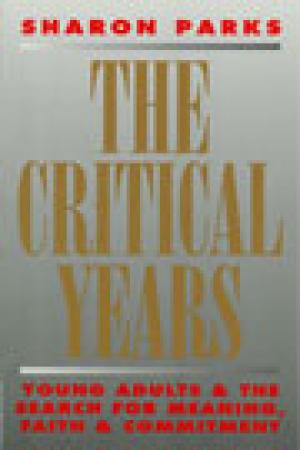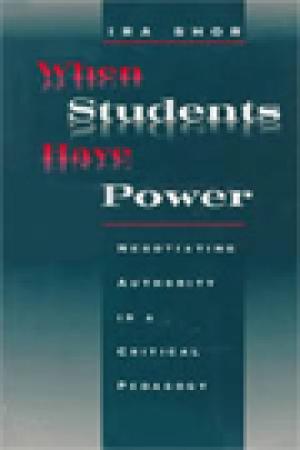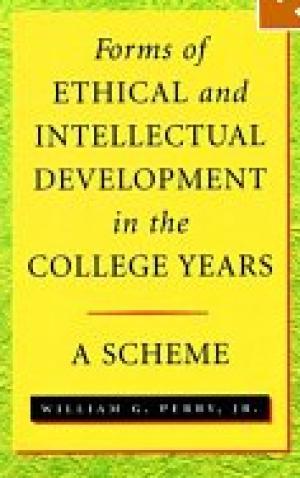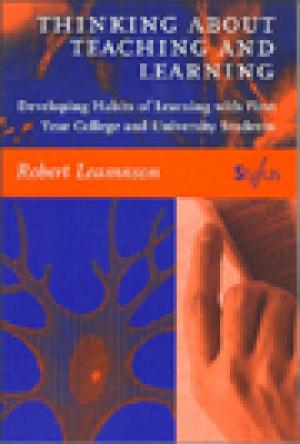Resources

A key study for understanding the transformation of meaning in young adults. (From the Publisher)

What happens when teachers share power with students? In this profound book, Ira Shor--the inventor of critical pedagogy in the United States-- relates the story of an experiment that nearly went out of control. Shor provides the reader with a reenactment of one semester that shows what really can happen when one applies the theory and democratizes the classroom. This is the story of one class in which Shor tried to fully share with his students control of the curriculum and of the classroom. After twenty years of practicing critical teaching, he unexpectedly found himself faced with a student uprising that threatened the very possibility of learning. How Shor resolves these problems, while remaining true to his commitment to power-sharing and radical pedagogy, is the crux of the book. Unconventional in both form and substance, this deeply personal work weaves together student voices and thick descriptions of classroom experience with pedagogical theory to illuminate the power relations that must be negotiated if true learning is to take place. (From the Publisher)

Since its original publication in 1970, this landmark book by William Perry has remained the cornerstone of much of the student development research that followed. Using research conducted with Harvard undergraduates over a fifteen-year period, Perry derived an enduring framework for characterizing student development - a scheme so accurate that it still informs and advances investigations into student development across genders and cultures. Drawing from firsthand accounts, Perry traces a path from students' adolescence into adulthood. His nine-stage model describes the steps that move students from a simplistic, categorical view of knowledge to a more complex, contextual view of the world and of themselves. Throughout this journey of cognitive development, Perry reveals, the most significant changes occur in forms in which people perceive their world rather than in the particulars of their attitudes and concerns. He shows ultimately that the nature of intellectual development is such that we should pay as much attention to the processes we use as to the content. In a new introduction to this classic work, Lee Knefelkamp - a close colleague of Perry's and a leading expert on college student development - evaluates the book's place in the literature of higher education. Knefelkamp explains how the Perry scheme has shaped current thinking about student development and discusses the most significant research that has since evolved from Perry's groundbreaking effort. Forms of Ethical and Intellectual Development in the College Years is a work that every current and future student services professional must have in their library. (From the Publisher)

Here is a compelling read for every teacher in higher education who wants to refresh or reexamine his or her classroom practice. Building on the insights offered by recent discoveries about the biological basis of learning, and on his own thought-provoking definitions of teaching, learning and education, the author proceeds to the practical details of instruction that teachers are most interested in — the things that make or break teaching. Practical and thoughtful, and based on forty years of teaching, wide reading and much reflection, Robert Leamnson provides teachers with a map to develop their own teaching philosophy, and effective nuts-and-bolts advice. His approach is particularly useful for those facing a cohort of first year students less prepared for college and university. He is concerned to develop in his students habits and skills that will equip them for a lifetime of learning. He is especially alert to the psychology of students. He also understands, and has experienced, the typical frustration and exasperation teachers feel when students ingeniously elude their teachers' loftiest goals and strategies. Most important, he has good advice about how to cope with the challenge. This guide will appeal to college teachers in all disciplines. (From the Publisher)

Reveals the deep and pervasive search for meaning that haunts Generation X. This book is must reading for anyone who would understand the spirituality of young people at the turn of a new millennium.—Robert A. Ludwig, author of Reconstructing Catholicism for a New Generation In Virtual Faith, Beaudoin explores fashion, music videos, and cyberspace concluding that his generation has fashioned a theology radically different from, but no less potent or valid than, that of their elders. Beaudoin's investigation of popular culture uncovers four themes that underpin his generation's theology. First, all institutions are suspect — especially organized religion. Second, personal experience is everything, and every form of intense personal experience is potentially spiritual. Third, suffering is also spiritual. Finally, this generation sees ambiguity as a central element of faith. This book opens a long overdue conversation about where and how we find meaning, and how we all can encourage each other in this central human searching. (From the Publisher)